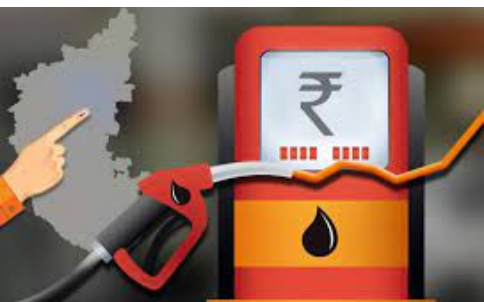Even since the dawn of the new century the prices of petrol, petrol products and diesel are shooting up in India. These escalations are significantly impacting the economic performance. In India, the price of petrol is deregulated in 2000 and that of diesel in 2014. Oil marketing companies are allowed to determine the price of petroleum products independently based on the current currency exchange rates and international oil prices. Today, petrol prices have crossed Rs 100/ per litre in several states and union territories.
Deliberately kept out of GST
While international crude oil prices are said to determine the cost of fuels in India, it is only one factor in the rise in cost for petrol and diesel. The main reason for the hike is central and state government taxes. For the central and state governments, excise duty and VAT on petroleum are respectively important sources of revenue in the fiscal management. Petrol, diesel and alcohol are kept deliberately out of the purview of uniform country wide goods and services tax (GST). Although it is said that the fall in case of international crude oil price brings decline the price of petrol and diesel in domestic markets, it was seen contrary to their contentions. Excise duty, cess on diesel and VAT on the basic price of oils went up gradually several times and are moving up perpetually. Thus petroleum products cannot be deemed as ‘market goods’ but should be appreciated as ‘political goods’. There was reduction of excise duty only on a few occasions in the past as sometimes the electoral fortunes are greatly influenced by the oil price.
Highest fiscal deficit
India’s fiscal deficit was at 9.3% of GDP in 2020-21 which was highest fiscal deficit on record. But it was explained away by the minister that levies on fuel are helping the central government to meet current welfare expenditure specially in these times of pandemic outbreak. He vehemently supported the price hike in other words the heavy taxation on petroleum. However, this explanation is not exceptional. Governments on previous occasions also treated oil prices as an essential feature to meet welfare expenditure and more so on meeting doles and cash disbursements. Though these high taxes on fuels by the government cannot be contested as they are required to meet overall welfare expenditure, the exorbitant rise in fuel prices will certainly trigger serious secondary impact on the economy.
Rob Peter and Pay Paul
Everyone agrees that Peter and Paul are on an even keel. The cockeyed taxation of ‘Rob Peter and Pay Paul’ for political gains would certainly harm the economy and governance in the long run.
It is said that while seven years ago the crude oil price was two thirds of the oil price. Today the high taxes have usurped this place. The price component of crude is only one third of the total. It is necessary in this context to recall what the RBI governor mentioned at the meeting of monetary policy committee in February 2021. He said, ‘proactive supply side measures, particularly in enabling a calibrated unwinding of high indirect taxes on petrol and diesel in a coordinated manner by central and states are critical to contain the further build-up of cost- premises in the economy’





Good